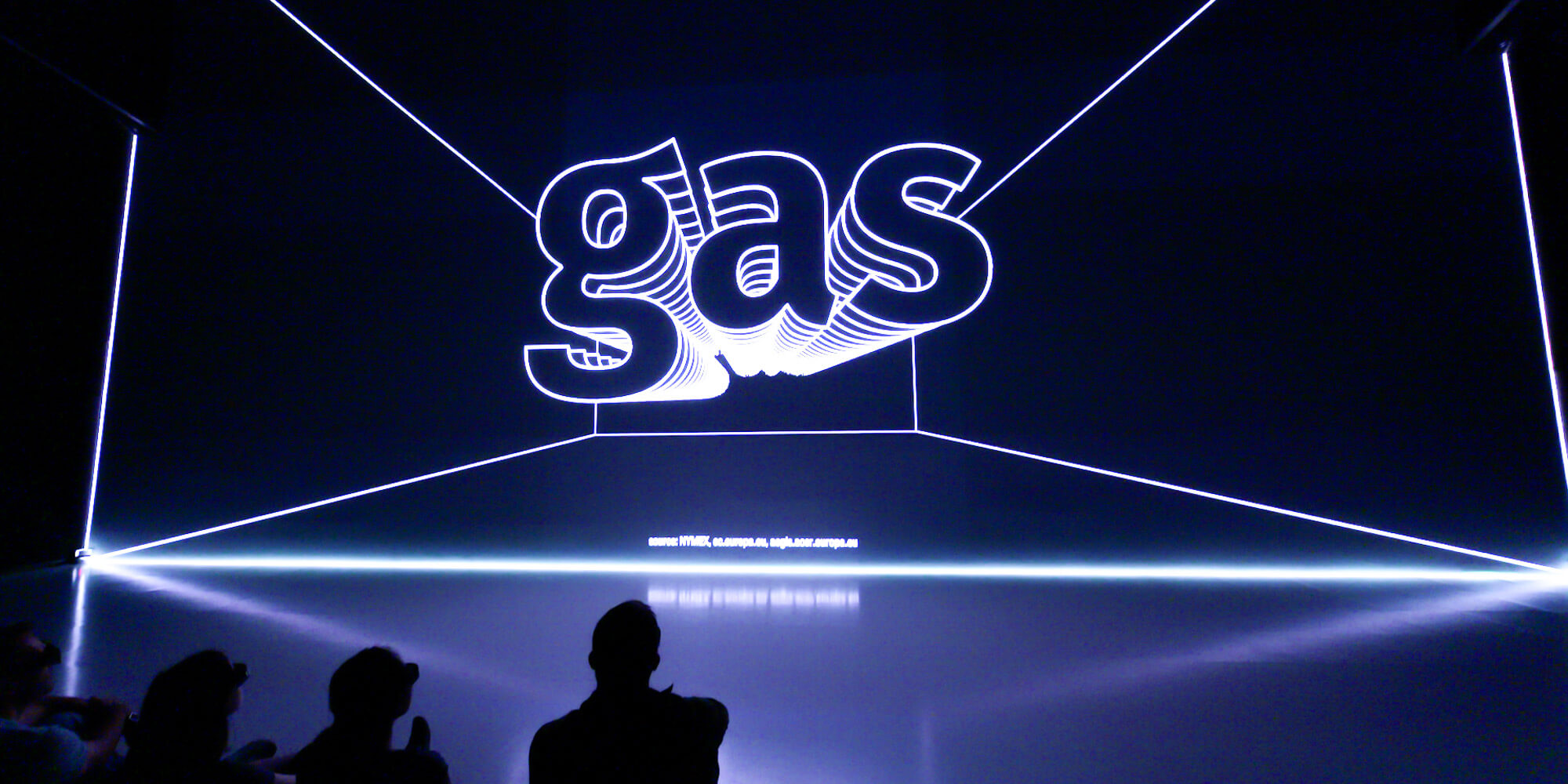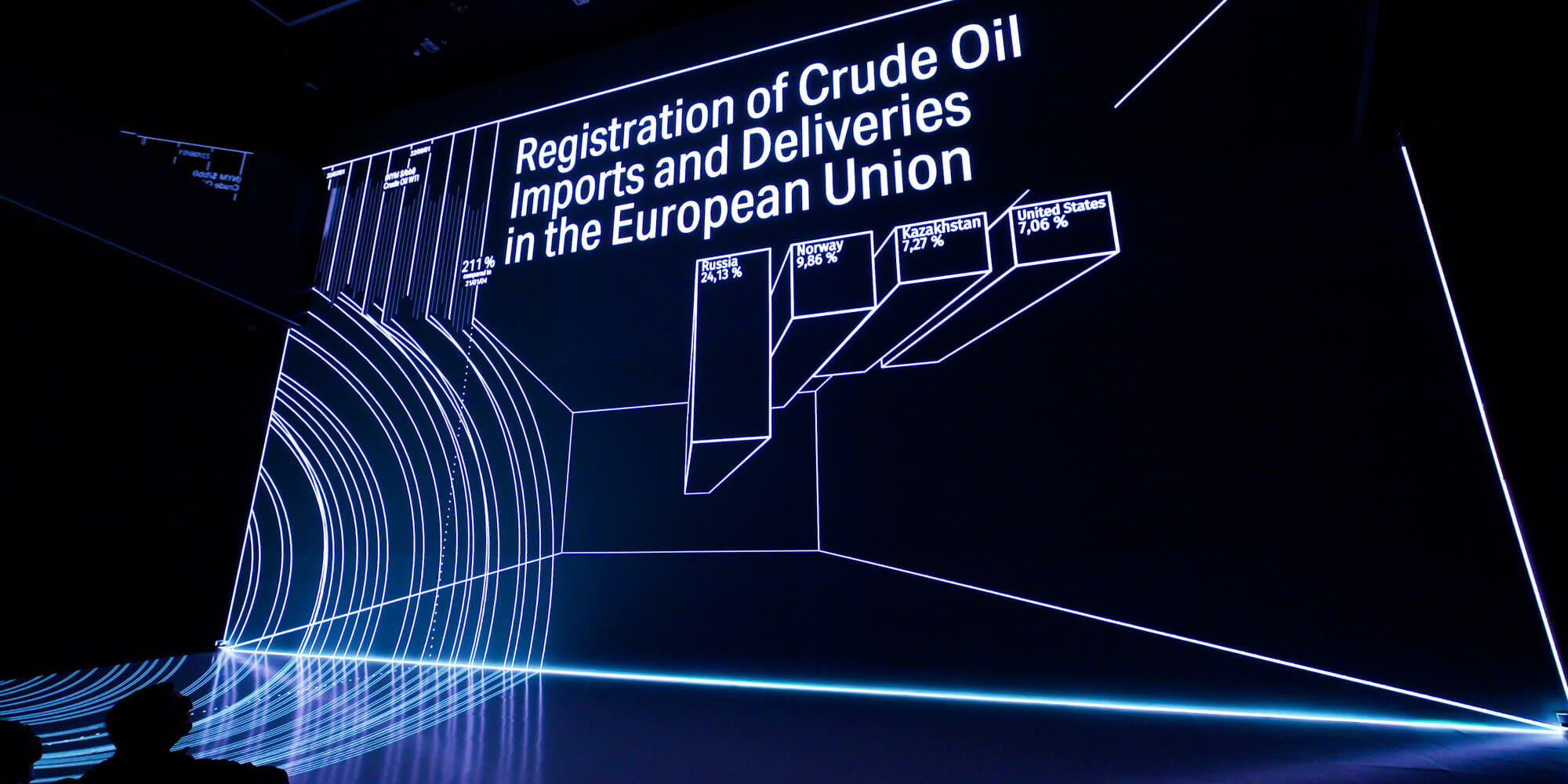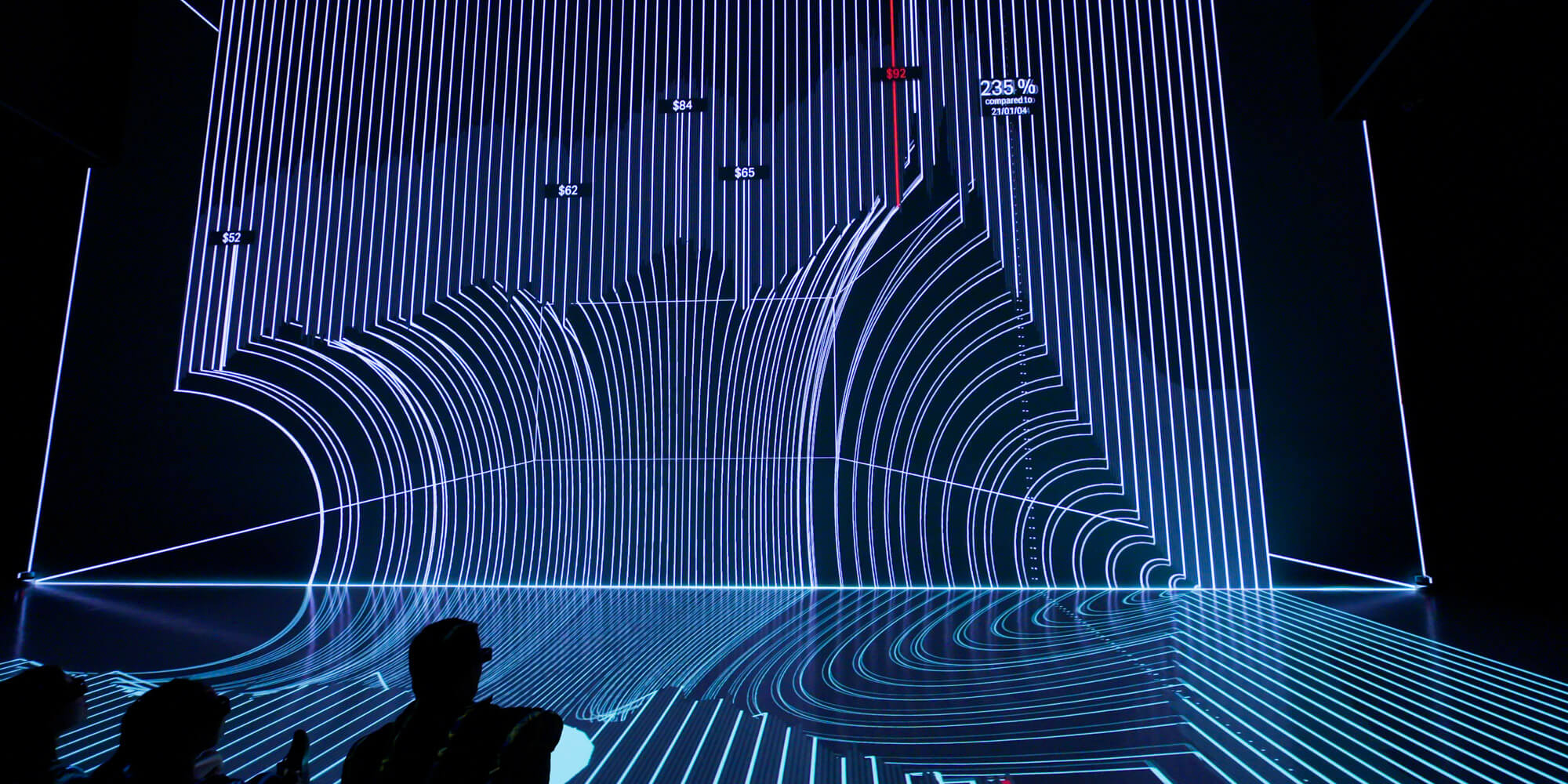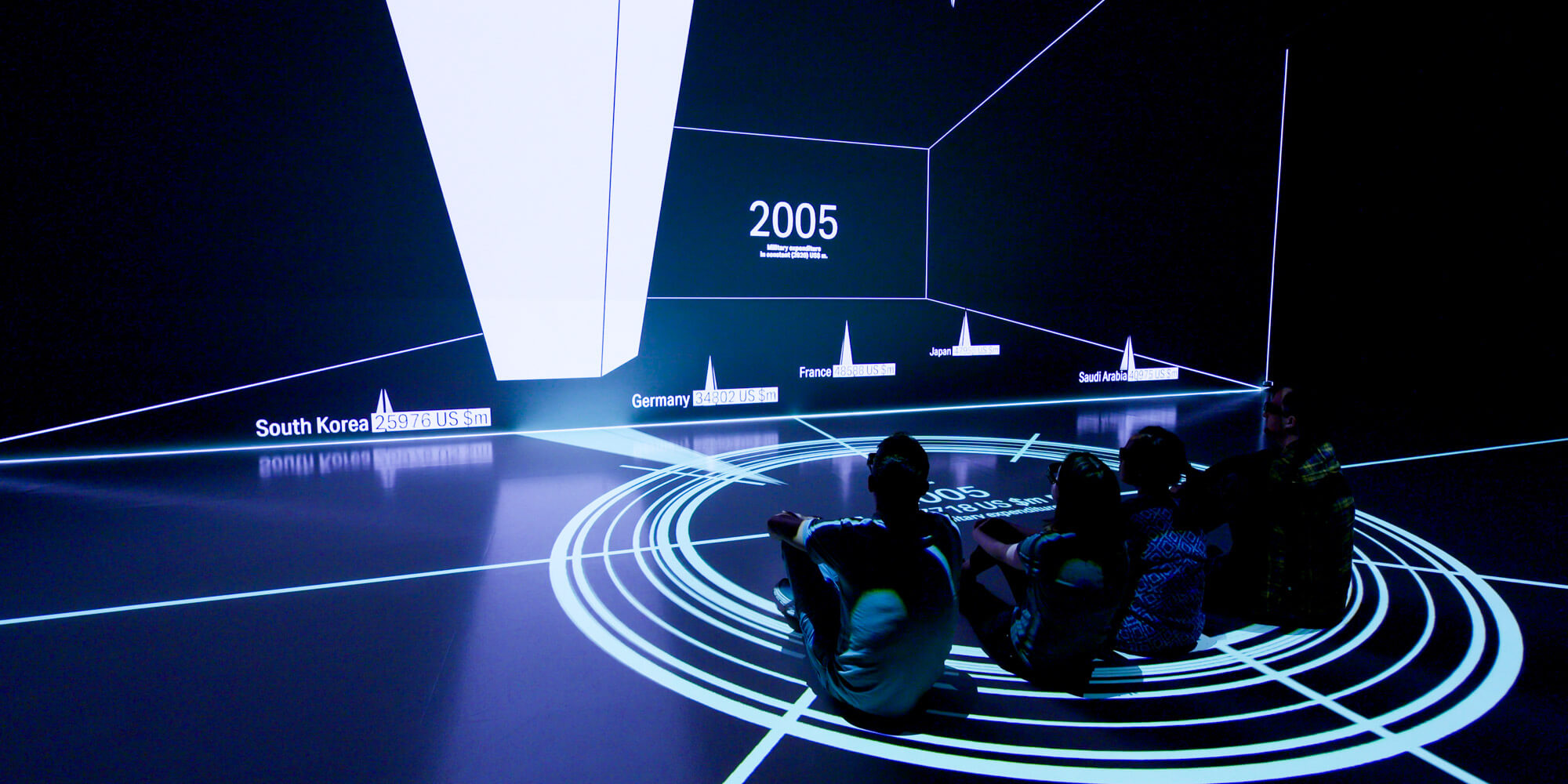February 24, 2022: Amid a global pandemic, Russia has invaded Ukraine. Until today, this war continues in Europe. It also raises questions for the media and the public: What is truth, what is the role of its communication, and how can art and journalism contribute meaningfully to a seemingly endless crisis?
With data and facts, the immersive audiovisual 3D visualization Dataspace tries to convey this global chain reaction triggered by Russia’s attack on Ukraine in Ars Electronicca Center’s Deep Space 8K, to make the hardly comprehensible visible and tangible. Because apart from the indescribable suffering, the scale of destruction of national infrastructure and irretrievable cultural treasures at the epicenter of the war, – the impact of this conflict is accompanied by economic consequences and serious resource problems worldwide.






What does the war mean for the everyday life of each one of us? What challenges does it present us with? And what can we learn from these experiences for the development of future scenarios?
What is the price of our dependence now that gas is running out? Will we be able to build an economic model without oil, given the sharp rise in oil prices? Can we avoid hunger in the face of global wheat shortages? And what kind of new unrest might this impact? If you were displaced by war, where would you live? What will the nation budget for and where might the world go after this war? And what do you think the future of democracy will look like?
What does war mean for the everyday life of each of us? What challenges does it present us with? And what can we learn from these experiences for the development of future scenarios?
For the 3D application Dataspace: Global Impact of the Russian War on Ukraine, researchers from the Ars Electronica Futurelab collaborated with the Innovation Lab of the Japanese financial media company Nikkei to collect and analyze meaningful data and analyzed it in order to present it to the public visually and in 3D. The list of facts influencing these developments is long, and the derivations that follow are complex. But the insights gained for this Dataspace are now being presented in all their dimensions in Deep Space 8K to open the complexity of the global economic consequences of war and to initiate a discussion. With a kind of “Zen Garden of information” Dataspace wants to set a counterpoint to the loud war reporting. In the contemplative atmosphere of minimalist 3D graphics by Nicolas Naveau and Raphael Schaumburg-Lippe, both artists and researchers at the Ars Electronica Futurelab, visitors are invited to virtually immerse themselves in world and economic politics. Here, you can form your own undistorted but multidimensional picture of global interrelationships and discuss what these facts and figures mean for the future of our society.
Get your own thoughts on the global impact of this war with Dataspace on September 7 or 8, Futurelab Day, or learn about new means and methods that enable deeper engagement with facts and issues than simply consuming and reacting to news at the Media of the Future panel discussion.